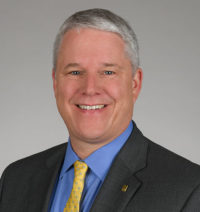Gov. Ralph Northam announced Tuesday he is “slowly and safely” lifting some COVID-19 restrictions statewide beginning April 1, including raising limits of gatherings to 30% capacity at entertainment venues.
In most cases, outdoor gatherings will be limited to 100 people and indoor gatherings at 50 people, the governor said. Wedding venues, which have been under heavy restriction for months, will be allowed to have events following these limits. Large entertainment venues, such as The Diamond baseball stadium in Virginia, can have more attendance, he added, as long as they don’t exceed 30% of the venue capacity, and masks and physical distancing are enforced.
Last week, Northam released preliminary guidance for K-12 schools, colleges and universities to safely hold in-person graduation ceremonies and other commencement events this spring. Outdoor graduation events will be capped at 5,000 people or 30% of the venue capacity, whichever is less, and indoor events have a limit of 500 people or 30% of capacity.
“These are measured changes,” Northam said, noting that masking and physical distancing measures remain in place. Responding to a question, he said that he has not yet lifted restrictions on indoor businesses like bars because “this is where the virus tends to be spread. As soon as we can open or lift measures safely and responsibly, we will.”
The governor’s office sent further details regarding the changes going into effect April 1:
- Social gatherings increase from a limit of 25 people outdoors and 10 people indoors currently to 50 people indoors and 100 people in outdoor settings after April 1.
- Entertainment venues, including amusement parks, continue to operate at 30% capacity. Outdoor venues will have no specific cap on the number of attendees other than observing the 30% capacity limit. Indoor venues can have a maximum of 500 people, an increase from the current 250 cap.
- Recreational sporting events will allow 100 spectators per field or 30% capacity in indoor settings, and 500 people per field or 30% capacity for outdoor events.
However, members of Virginia’s wedding industry are still concerned about their financial health. The owner of Belle Garden Estates, a Franklin County wedding venue, filed a lawsuit against Northam earlier in the month seeking an injunction against restrictions affecting gatherings at wedding sites.
Attorney Tim Anderson, who filed the suit on behalf of the plaintiff, said in a statement Tuesday that Northam’s expansion of attendance to 100 people “does not change the posture of the lawsuit. … Wedding venues are being treated differently [than] other outdoor venues. This is discriminatory. Why can a wedding venue not operate with up to 30% capacity?”
Northam, who has said that weddings are riskier than other kinds of gatherings, with family members and friends hugging and dancing, said Tuesday he will revisit lifting other restrictions on a monthly basis, as long as cases, hospitalizations and deaths continue to decline. He re-emphasized that outdoor wedding venues will continue to be limited to 100 attendees for the time being.
The governor added that he met earlier in the day with other U.S. governors and Dr. Anthony Fauci, the nation’s top infectious diseases expert, to discuss reopening plans and vaccination rollout. “This isn’t about throwing a switch or opening up the floodgates,” Northam said, characterizing Fauci’s advice.
In vaccination news, Northam said that the state will receive about 48,000 more doses of the single-dose Johnson & Johnson vaccine beginning next week, about five times the amount received in the past week.
As of Tuesday, 24.5% of the state’s population has received at least one COVID-19 vaccine dose, and 13.4% are fully vaccinated. Several regions of the state have started vaccinating people in group 1c and the number of new cases and deaths have decreased in recent weeks. The current seven-day positivity rate is 5.6%, according to the Virginia Department of Health’s COVID dashboard. In January, the rate was at 17%, Northam noted Tuesday.
The governor said Virginia is on target to meet President Joe Biden’s May 1 deadline for all U.S. adults to have access to COVID vaccines.

Subscribe to Virginia Business.
Get our daily e-newsletter.



